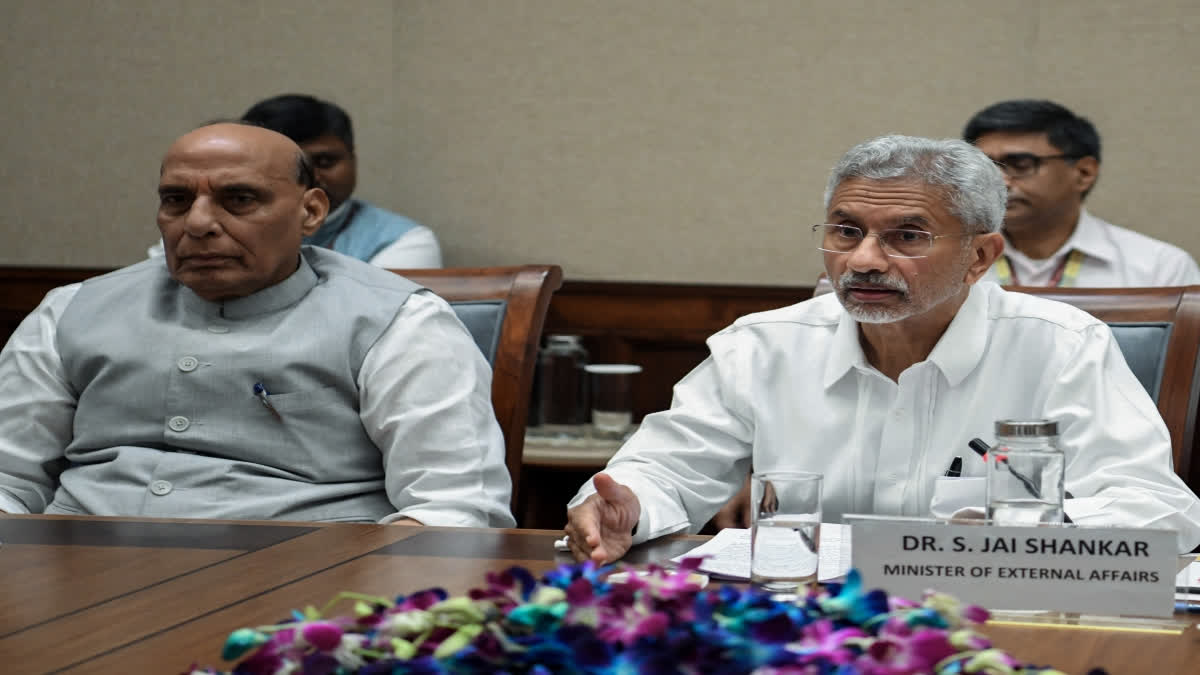New Delhi: India is shrinking its its diplomatic presence in Bangladesh with non-essential staff and their families at the Indian High Commission in Dhaka voluntarily returning here via commercial flights, sources said on Wednesday, August 7. Diplomats including the High Commissioner are still stationed in Bangladesh, sources confirmed.
The decision was taken in a meeting that President Mohammed Shahabuddin chaired with chiefs of the three services and a 13-member delegation of the Anti-Discrimination Student Movement at Bangabhaban.
India has assistant high commissions in Chittagong, Rajshahi, Khulna and Sylhet. "Our diplomats and officials continue in Dhaka. Non essential staff and families have returned this morning.
To reiterate all the helplines of HCI Dhaka are working. The helpline numbers are being shared again below for reference: +8801958383679; +8801958383680; +8801937400591," top government sources said.
External Affairs Minister S Jaishankar on Tuesday, August 6 said that as a host government, we would be providing the required security protection to the Indian missions in Bangladesh. "New Delhi was looking forward to the normal functioning of its missions once the situation stabilised," he said.
He said that there are an estimated 19,000 Indian nationals there, of which about 9,000 are students. The bulk of the students have already returned to India in the month of July on the advice of the High Commission.
"In terms of our diplomatic presence, in addition to the High Commission in Dhaka, we have Assistant High Commissions in Chittagong, Rajshahi, Khulna and Sylhet. It is our expectation that the host government will provide the required security protection for these establishments." Jaishankar told both the houses of Parliament.
Sheikh Hasina (76) resigned as Bangladesh's Prime Minister and fled the country on Monday, August 5, following weeks of deadly protests that began as demonstrations by students against government job quotas. She left Bangladesh on Monday in a military aircraft and landed at an airfield at Hindon near Delhi in the evening.
President Mohammed Shahabuddin dissolved parliament on Tuesday, August 6 to facilitate the establishment of an interim administration following the PM's resignation.
In addition, the president appointed Nobel laureate Mohammad Yunus as the head of an interim government and lifted house arrest against Hasina's fiercest opponent, Begum Khaleda Zia, the head of the Bangladesh Nationalist Party.
Read More:



